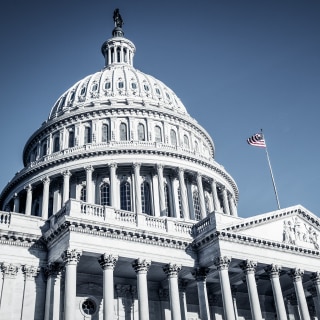Breakdowns in negotiations within Congress and the Administration have led our country towards a series of fragmented legislative and executive actions aimed at stopgap solutions to complex problems. We must stay laser-focused on a systems approach to building thriving, resilient communities that support family well-being and create real opportunities for social and economic mobility. APHSA calls upon federal leaders to come together around bipartisan solutions that equip state and local agencies with the tools needed to meet the whole needs of families and communities. The magnitude of the challenges we face cannot be solved through piecemeal investments in these building blocks.
As the COVID-19 pandemic continues to impact the way people and communities live, learn, work, and connect, it has become self-evident how interconnected the foundational building blocks to well-being are. We cannot talk about driving a strong and equitable economic recovery through employment opportunities without first ensuring access to safe and affordable child care and education. And we cannot disentangle the root causes of deepening health disparities revealed through the pandemic without tackling the social and environmental conditions that are driving these inequities. Our path forward through this health and economic crisis is anchored in the critical infrastructure of what communities need to weather the forces of the pandemic. To bridge the social and economic gaps families are experiencing and prevent further unnecessary harm, human service agencies across the nation continue to work tirelessly to deliver services and meet ever-increasing demand. Unfortunately, they are doing so with wholly inadequate resources; state and local budgets have been decimated, forcing the agencies that support the backbone of communities to make tradeoffs in what they can realistically do.
Getting to the root of the challenges the pandemic has exposed requires policymakers to address a broad range of challenges faced by members of our communities and the agencies that serve them, including:
- Addressing Rising Food Insecurity – By investing in critical nutritional supports and authorizing implementing agencies to adapt service delivery models to reflect the barriers faced by families in accessing food.
- Preserving Safe and Affordable Child Care – By helping child care providers sustain operations and adapt to new health and safety protocols, and preserving affordability and access to child care for working families.
- Supporting the Needs of Impacted Workers – By ensuring people’s basic needs are met when work is unavailable and investing in supports that help workers adapt to shifting economic markets.
- Keeping Families Safely Together – By helping parents that face increased instability access critical services to prevent crises and keep children safe at home.
- Stabilizing the Public Agencies Charged with Responding to Community Needs – By providing funding and flexibilities to support the fundamental service array that must undergird an effective human services system.
APHSA is committed to working with our federal partners to find common ground and generate practical solutions to the pressing challenges our nation faces to support the health and well-being of children and families.
∎
